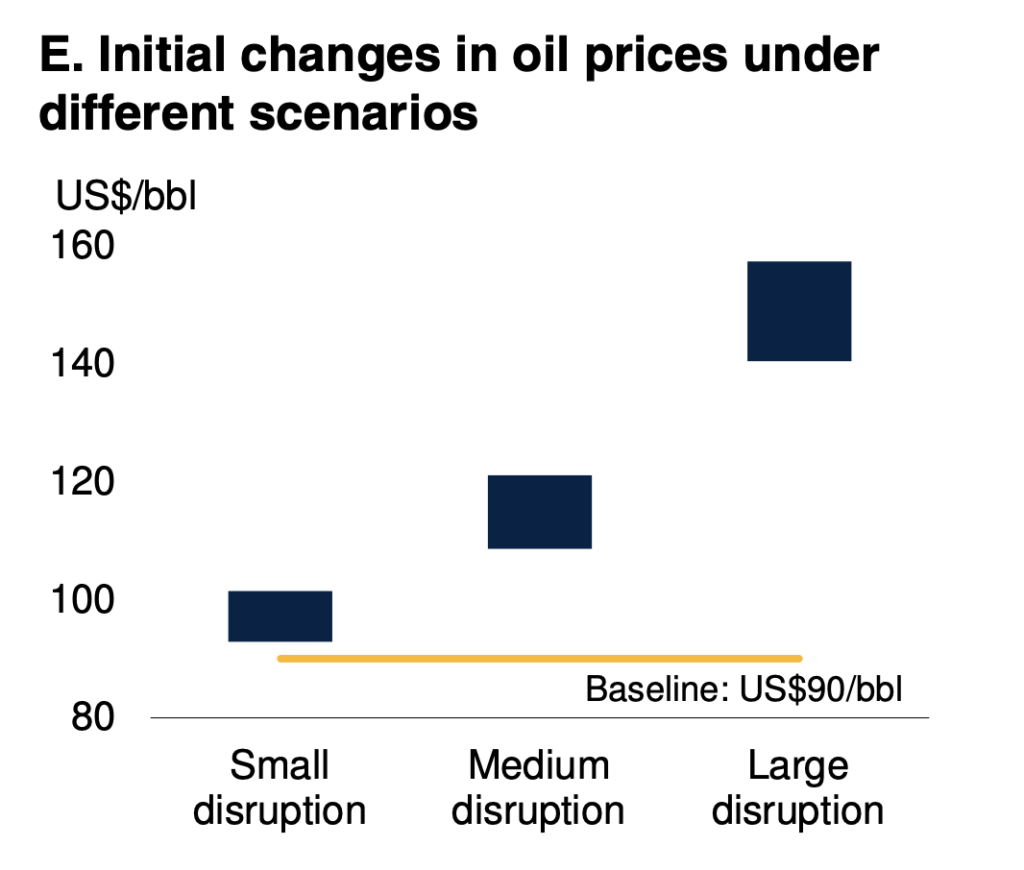Zinger Key Points
- Israeli forces have intensified their ground invasion into the Gaza Strip.
- The World Bank issued a report showing that crude oil prices could rise as high as $157/bbl – in the most bullish scenario – due to the war.
- Feel unsure about the market’s next move? Copy trade alerts from Matt Maley—a Wall Street veteran who consistently finds profits in volatile markets. Claim your 7-day free trial now.
As the conflict between Israel and Hamas enters its 24th day, here are the most recent developments:
- IDF Spokesman Rear Adm. Daniel Hagari stated that additional troops have entered the Gaza Strip in the last 24 hours, signifying an expansion of the military’s ground operation. During his daily morning briefing, he remarked that additional forces have been deployed in the strip and activities there are set to escalate, as reported by the Times of Israel. Furthermore, Israeli forces also targeted military infrastructure within Syrian territory in response to earlier launches from Syria towards Israel on Sunday.
- The United Nations Security Council will convene an urgent meeting on Monday to discuss Israel’s ground incursion into Gaza. According to CNN, the United Arab Emirates plans to propose a binding resolution to other Security Council members, calling for an immediate humanitarian cessation of hostilities. This emergency session follows the approval of a United Nations resolution on Friday, introduced by Jordan that garnered support from 120 countries and called for a “sustained humanitarian ceasefire” in Gaza. The United States opposed this resolution, with 45 countries abstaining from the vote.
- Martin Griffiths, the UN aid chief, has expressed his intention to engage in discussions with the leadership of both Israel and Palestine on how to enhance the humanitarian response to the ongoing conflict.
- The World Bank has issued a warning that an escalation of the Israel-Hamas conflict could lead to a significant rise in oil prices. In a limited disruption scenario akin to the impact of the 2011 Libyan civil war, oil prices could surge to as high as $103 per barrel, the agency said. In a moderate disruption scenario, comparable to the 2003 Iraq war, oil prices could increase by as much as 35%, reaching $121 per barrel. In a severe disruption scenario, akin to the Arab oil embargo in 1973, oil prices could skyrocket by 75%, reaching $157 per barrel.

Source: The World Bank
Market Reactions
Global stocks kicked off the week positively, with traders gearing up for the week’s significant event, the Federal Reserve Open Market Committee meeting. This meeting is eagerly awaited and a hold on interest rates is widely expected.
Futures on the S&P 500 index, as tracked by the SPDR S&P 500 Index SPY, were 0.6% higher ahead of the market open in New York.
The dollar, as tracked by the Invesco DB USD Index Bullish Fund ETF UUP, fell 0.2%, despite rising Treasury yields Monday morning.
Photo via Shutterstock.
Edge Rankings
Price Trend
© 2025 Benzinga.com. Benzinga does not provide investment advice. All rights reserved.
Trade confidently with insights and alerts from analyst ratings, free reports and breaking news that affects the stocks you care about.